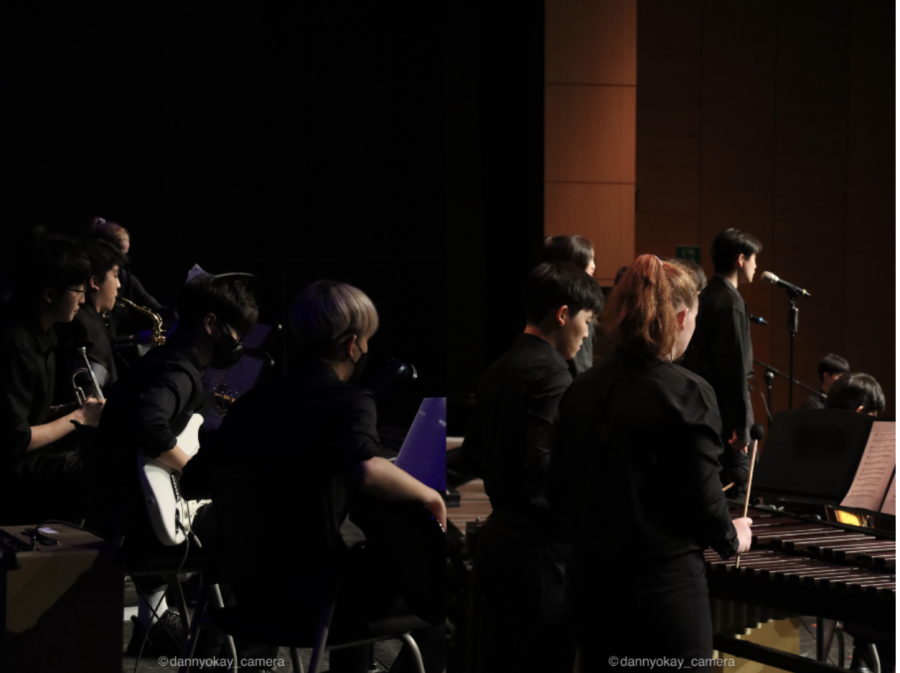How sleep deprivation has an impact on academic performance.
As the students of Chadwick International School approach the final exam period, the candle begins to burn at both ends. With countless assignments, exams, and group projects to prepare, most students find it impossible to get the recommended amount of sleep. For instance, most tenth-grade students, on average, sleep less than five hours a day, a number extremely lower than the recommended amount.
In collaboration with the CDC, the American Academy of Sleep Medicine has noted that “teenagers aged 13-18 years should sleep 8-10 hours” per day. Besides the obvious fact that students feel better when they have slept an appropriate amount of time, there are a number of health risks associated with sleep deprivation. When it comes to people below the age of 18, Vicki Contie, writing for the National Institutes of Health, explains that countless research has shown that children who get more sleep show stronger cognitive development. Contie goes on to explain that this is shown through learning performance and behavior.
When questioned on the issue, a ninth-grade student offered some insight into how their learning is impacted by a lack of sleep. The student explained, “Because I sleep about four hours a night, I find that I can’t focus in class. Even if my eyes are open, I cannot seem to process what the teacher is explaining, especially in technical classes like math.” After it was suggested to the student that they should try to get more sleep, they added, “I would love to sleep more, but it would mean that I would have to submit assignments that are of a much lower quality than my capabilities. The result of that would be lower grades.”
The paradox of the student’s comments is that sleep deprivation is actually shown to be detrimental to academic performance. Dr. Harris, for example, notes that a lack of sleep negatively affects the nervous system, resulting in one’s brain becoming unable to function adequately. Thus, the following expectation is that students will perform worse on their assignments and tests if they do not have enough sleep before completing them.
When this evidence was presented to a tenth-grade student, they replied, “I respect and accept the research as accurate, but as students, we have no other choice.” When asked to expand, they stated, “Of course, the quality of our assignments would be better if we could complete them after adequate sleep, but the amount of work assigned with the final exam period makes this unrealistic. Procrastination also partly extends our working hours, but the greatest problem is the unmanageable amount of schoolwork and the limited time we are given to complete those assignments.” Another student adds, “I wish the teachers would understand how we also have other out-of-school activities during the year, meaning that their assignments are not the only priorities. We all just want to achieve our goals in attending our dream university.”
Thus, it seems that students are forced to accept that they will not be able to perform to their highest levels because of not getting enough sleep. Most people would probably agree that students’ grades should not suffer because they are unable to get the right amount of sleep that enables them to complete their assignments to a level that matches their abilities.
As the clock ticks down toward the end of the semester, there are a couple of things students can do to try to remedy this problem. The CDC notes that even if a student cannot get enough sleep, they can benefit from maintaining a consistent sleep schedule. This body is said to operate better when it maintains a fixed routine; moreover, it enables people to fall asleep faster at their particular sleep time. Second, limiting light exposure is critical to getting a good night’s sleep. This means removing one’s eyes from electronic devices, such as not looking at smartphones in bed. Therefore, even though most students won’t be able to get the right amount of sleep during the final period of the semester, hopefully, they can at least make the most of the sleep they do get.

Hello! I am Claire Kim, a journalist in the Bell Tower Magazine division. This is my second year in CI Journalism and my second year in the Bell Tower...















